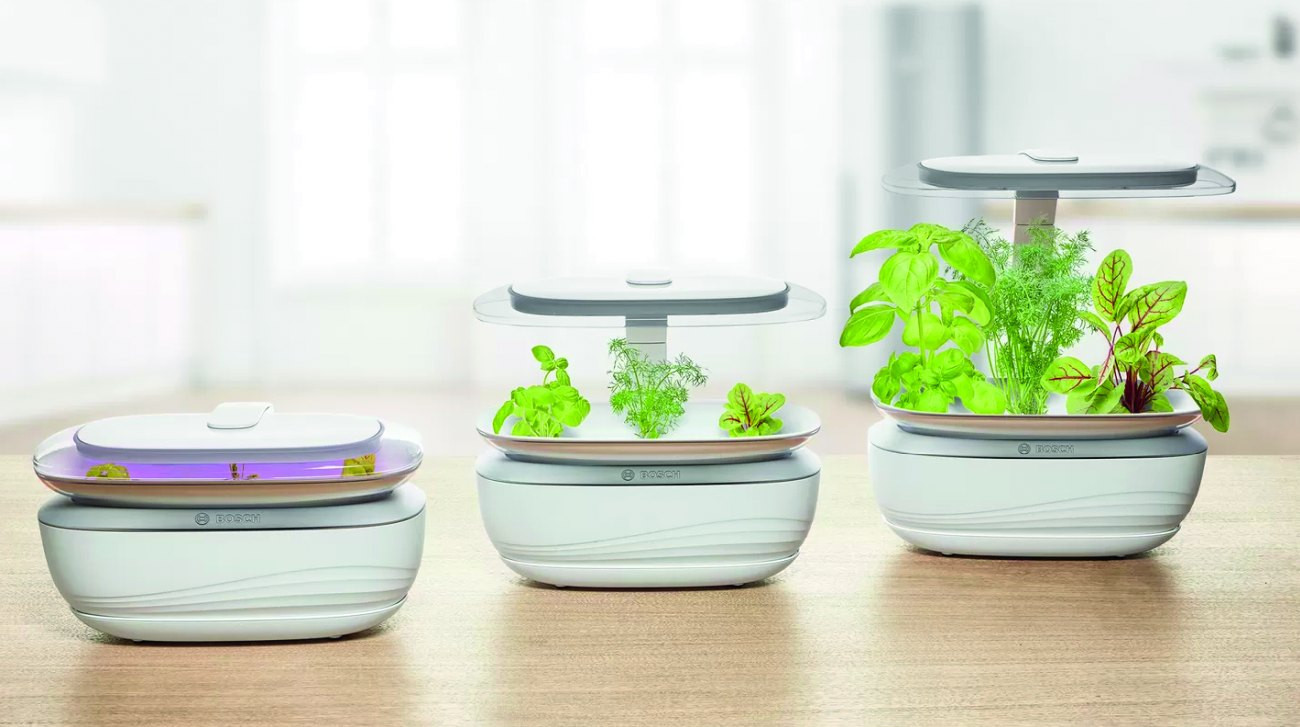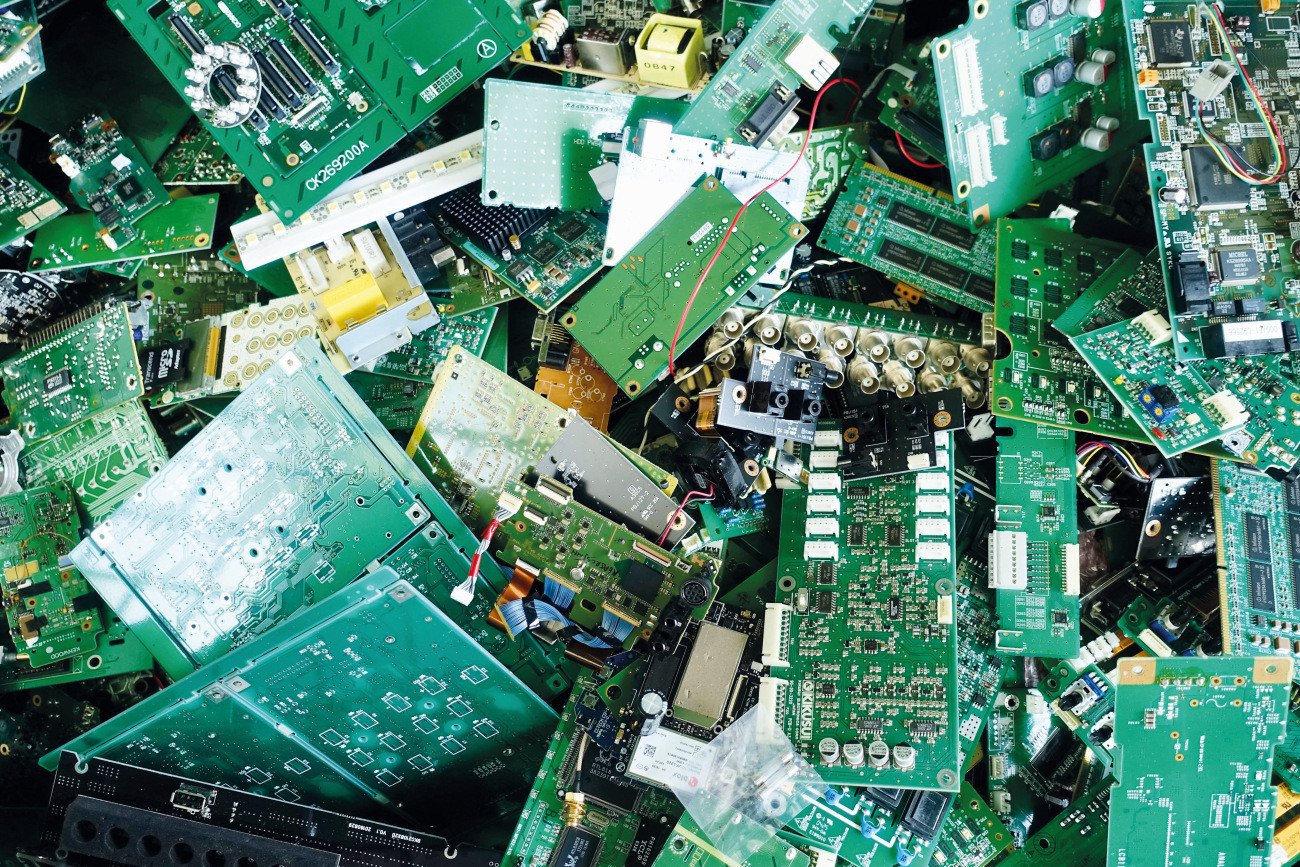An interview with Gwaenelle Avice-Huet, Chief Strategy & Sustainability Officer at Schneider Electric, about sustainability in smart homes and IIOT solutions
 Gwaenelle Avice-HuetThe IFA 2022 trade fair in Berlin last September aimed to besustainable. However, many visitors were disillusioned: key terms such as 'greentech & sustainability' often seemed more like mere claims [1]; a member of the PLUS editorial team asked the legitimate question of the extent to which electronic products such as vegetable growing boxes with Wi-Fi connectivity, smart gardening products [2] or electric lunchbox warmers could be reconciled with sustainability claims. The four R-themes (Reduce, Repair, Reuse, Recycle) played no real role at the vast majority of stands - at most as buzzwords.
Gwaenelle Avice-HuetThe IFA 2022 trade fair in Berlin last September aimed to besustainable. However, many visitors were disillusioned: key terms such as 'greentech & sustainability' often seemed more like mere claims [1]; a member of the PLUS editorial team asked the legitimate question of the extent to which electronic products such as vegetable growing boxes with Wi-Fi connectivity, smart gardening products [2] or electric lunchbox warmers could be reconciled with sustainability claims. The four R-themes (Reduce, Repair, Reuse, Recycle) played no real role at the vast majority of stands - at most as buzzwords.
A presentation by Gwaenelle Avice-Huet, Chief Strategy & Sustainability Officer of the electrical engineering company Schneider Electric, attracted more attention. She spoke - unfortunately only virtually - about the need to achieve sustainability goals more quickly ... by using more intelligent solutions for electronic control in smart homes and smart factories. A topic on which she is currently speaking on many international platforms.
But questions remain. After all, can this really be the solution - even more electronics for the sake of sustainability? We asked Ms. Avice-Huet about this [3]. The interview was conducted by Markolf Hoffmann.
In your presentation at the IFA, you described the 'energy paradox', i.e. that on the one hand we are producing more and more greenhouse gas emissions worldwide, but on the other hand we need to supply up to 2 billion additional people with energy to offer them quality of life and educational opportunities in order to enable them to produce clean energy for us all. Can this 'energy paradox' be solved at all?
Only through sustainability. All countries should have the opportunity to develop their economies and promote the well-being of their populations while combating climate change. In developed countries, accelerating the energy transition requires an acceleration of electrification and digitalization, which will create more green jobs and opportunities for the next generations. In less developed countries, this is also the case, but solutions are needed to extend access to clean and reliable electricity to more people, who in turn will benefit from more social, study and work opportunities and, simply put, a better quality of life.
In your opinion, the solution to decarbonizing the energy supply lies in accelerating the electrification and digitalization of transport, industry and large buildings. How realistic is this concept on a global scale?
Despite current pledges and efforts, we are far from where we need to be on the sustainability goals. In 2021, energy emissions were higher than ever before. We need to make faster progress in three areas of profound transformation: Switching to renewable energy, increasing electrification of the energy supply and increasing energy efficiency.
The current energy crisis can help as countries seek to meet their needs for energy sovereignty and security. The big question is how they will distribute their efforts across these three dimensions. While the decarbonization of energy supply is crucial, we are convinced that we should do more on the demand side of the energy transition than is currently planned. The fact is that the solutions already exist.
In terms of electrification of energy demand or consumption, electric vehicles are a great demonstration of what is possible and scalable. In European markets, where charging infrastructure is better developed and incentives and legislation are driving uptake, sales of electric vehicles are now outpacing gasoline and diesel vehicles. We should also drive the electrification of domestic heating and cooling through similar incentives, regulations and legislation.
Another example of where we can do more: According to the IEA, industry is the world's largest emitting sector at 8.7 tons or 26 tons. As only 22% of energy in industry is currently electrified, there are huge opportunities to make industrial processes more environmentally friendly. Electrification of up to 50% of these processes is already possible today, and digitalization combined with electrification is the way forward.
On the supply side, more than 60% of the energy used to generate electricity is lost or wasted. In particular, energy generated from fossil fuels is extremely inefficient, whereas electricity from renewable energy sources is 95% efficient! On the demand side of energy, digital technologies enable greater efficiency in grids, buildings, transportation or homes by giving us far more monitoring and control over how, when and where energy is used.
 SmartGrow Life Indoor Garden from Bosch: Do we really need it and does it help sustainability?
SmartGrow Life Indoor Garden from Bosch: Do we really need it and does it help sustainability?
You mention the need to become more energy efficient as a decisive factor. Don't people need to rethink before they can control and optimize their own energy consumption in the smart home?
In the current climate and energy crisis, people are already rethinking their energy consumption and looking for ways to reduce it and therefore their energy bills. We are seeing governments setting maximum temperatures for thermostats in public buildings and asking employers and the public in general to turn down their heating [4]. Smart thermostats, apps and devices give people the ability to see where energy is being used and control it in a customized way. When industry, businesses, public institutions and individuals can see exactly how and where they use energy, they can take targeted action to reduce their consumption.
You say that Schneider Electric also wants to focus on the sustainability of the smart home components themselves to improve their maintenance and durability.
As an impact company, we are committed to working on improving thecarbon footprint, durability and circularity of all our products, and we have established a clear roadmap of sustainability targets that we will achieve in the short term, including saving and avoiding 800 million tons ofCO2 emissions for our customers. t ofCO2 emissions for our customers, the use of 50% green material in our products and 100% recyclable cardboard in packaging by 2025. Where possible, we are gradually replacing conventional plastic material with recycled material, for example in our Odace range of switches and sockets. However, this is not always easy in the electrical industry, as the material has to meet many requirements in order to function under harsh conditions. When designing our products, we try to reduce the amount of raw materials required and minimize waste, for example by combining two functions in one product.
We also try to obtain cradle-to-cradle certification for our electrical components [5].
Schneider Electric also offers IIOT solutions for plant and machine manufacturers. What needs to change in terms of sustainability in 'Industry 4.0'?
The untapped energy efficiency potential in industry is 60 %. We can improve this through automation, digitalization and energy optimization to create efficient, sustainable and resilient industries of the future. Industry can make two changes with the help of our IIOT solutions for plant and machine manufacturers. One is the shift from a linear to a circular supply chain model. This is because companies face major challenges as they move from resource-intensive production and consumption to low-carbon, efficient processes.
The second important change I would mention is the integration of digital openness in industrial processes in order to standardize processes, IT and energy management, for example. Our customers want to work on the basis of open industry standards to drastically improve their environmental impact, upgrade production lines as needed, save valuable development time, compensate for supply chain disruptions or use locally available seasonal products.
How can modern manufacturing in the electronics industry be made more sustainable and efficient?
Over 50 million tons of electronic waste are generated worldwide every year, of which only 20% can be recycled. The world's entire manufacturing and process industries need to fully integrate sustainability into their business strategies. We must not only focus on cost optimization, but also consider the key performance indicators. Industrial eco-efficiency, waste reduction, energy management, responsibly sourced materials, regenerative design and circular economy can help protect biodiversity, empower and protect workers and achieve net zero emissions throughout our value chain.
 Sad end of a circuit board - in e-wasteSchneiderElectric owns and operates 200 smart factories and 100 smart distribution centers worldwide. We are committed to leading by example and deploying our own technologies and services at our sites. The World Economic Forum has designated six of our smart factories as 'beacons' of the fourth industrial revolution, classifying five as 'advanced' - in Hyderabad (India), Le Vaudreuil (France), in Wuxi (China), in Lexington (Kentucky) and in Batam (Indonesia) - and two as 'sustainable' (Le Vaudreuil and Lexington).
Sad end of a circuit board - in e-wasteSchneiderElectric owns and operates 200 smart factories and 100 smart distribution centers worldwide. We are committed to leading by example and deploying our own technologies and services at our sites. The World Economic Forum has designated six of our smart factories as 'beacons' of the fourth industrial revolution, classifying five as 'advanced' - in Hyderabad (India), Le Vaudreuil (France), in Wuxi (China), in Lexington (Kentucky) and in Batam (Indonesia) - and two as 'sustainable' (Le Vaudreuil and Lexington).
Our plant in Le Vaudreuil in France is an example of converged energy and automation. Based on EcoStruxure technology, the plant uses a wide range of digital tools to improve and control operations [6]. 'Augmented reality' speeds up operations and maintenance, resulting in productivity gains of up to 7%, while energy innovations lead to savings of up to 30%.
We also support our customers with their operations and factories. One example is the upgrade of glass producer Guardian Glass' power distribution system to increase efficiency. Thanks to our EcoStruxure solutions, the company achieved a power factor of up to 97.5% and received $50,000 in utility credits in the first four months. In addition, we helped ExxonMobil test advanced technologies in a converged IT/OT industrial control system in 2020.
On November 8, 2022, you spoke at the 'Corporate Knights' meeting of 57 global companies about actively working with policymakers to optimize the implementation of the Paris climate goals [7]. Were you able to achieve concrete and actionable results from these discussions?
Public and private partnerships are critical to accelerate decarbonization and potentially put us on the path to limiting global warming to 1.5°C. Businesses have an important role to play, but when it comes to sustainability goals, we can only win through collective effort! Schneider Electric is a co-signatory of the open letter of the World Economic Forum Alliance of CEO Climate Leaders [8], which calls on governments and businesses to share responsibility for climate action: first, by setting science-based targets; second, by contributing to the development of internationally harmonized reporting standards; and third, by committing to reconciling climate and youth concerns.
This is not enough to achieve net-zeroCO2 savings, and we know that we can and must do more to move the needle. But there is no time to lose! The next ten years are the most important to set the right course.
References
[1] Online editor Stefanie Bressem dryly categorized it in advance as 'under the radar', see www.handyhase.de/magazin/ifa-nachhaltig/.
[2] www.bosch-home.com/de/shop/smart-indoorgardening
[3]www.se.com/ww/en/about-us/newsroom/experts/details/gwenaelle-avice-huet-62178581f9c608446d2a9904
[4] The company Kraus Hardware, for example, shows how companies can independently curb their energy consumption, PLUS 12/2022, p. 1623f.
[5] www.sempergreenwall.com/de/faq/was-ist-cradle-to-cradle/
[6] www.se.com/de/de/work/campaign/innovation/platform.jsp
[7] www.corporateknights.com
[8] www.weforum.org/agenda/2021/10/cop26-ceo-climate-alliance-message-to-world-leaders/


